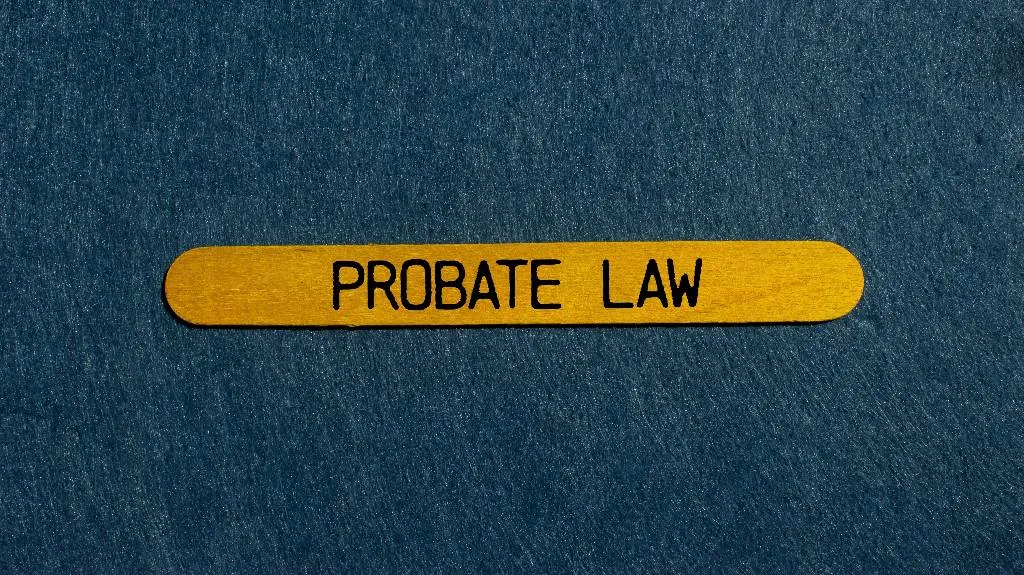Estate planning is a vital component of financial security for individuals and their families. While it may seem like an unappealing task, the consequences of not having an estate plan in place can be dire, especially if you become seriously ill or pass away unexpectedly. It is a common misconception that only extremely wealthy people need to think about estate planning, but it is important for anyone who has any assets or dependents to have a comprehensive estate plan in place. Estate planning allows you to control how your assets are distributed after death and ensure that your loved ones are provided for financially. It also lowers the costs of resolving legal disputes and lessens the possibility of friction among family members over the division of property.
Why you shouldn’t wait until you are sick to create an estate plan
The consequences of not having an estate plan in place can be serious and it’s wise to plan when you are young and healthy. The earlier you start the process, the more options you will have available for organizing your assets and ensuring that they are distributed according to your wishes. There are also health considerations when planning an estate; without a legally binding document in place, there may be confusion about who has authority over medical decisions or how end-of-life care should proceed if you become seriously ill or incapacitated.
Get a Free Consultation Today
If something unexpected were to happen to you before establishing an estate plan, your loved ones could face difficult financial hardship due to disputes over property division or unpaid debts. An effective estate plan helps ensure that these issues are addressed proactively and eliminates potential conflict between family members by clearly outlining how assets should be divided. It also reduces the legal costs associated with settling disputes, as everything is laid out in writing beforehand.
Lastly, knowing that all matters have been appropriately addressed beforehand gives you and those who are dear to you peace of mind. This knowledge can bring comfort during times of distress or grief, while ensuring that your dependents receive the greatest care possible and providing much-needed consolation during difficult grieving times.
The key components of an estate plan
A comprehensive estate plan consists of several key components that work together to guarantee your wishes are carried out. The foundation of every estate plan is a living trust, as everything else will have some connection to it. Next is a will, which specifies how your assets should be divided upon death and designates guardians for any dependents you may have. A power of attorney allows you to designate someone to make financial and legal decisions on your behalf in case you become incapacitated or unable to make decisions yourself. Finally, an advance healthcare directive allows you to point to someone who can make medical decisions for you in the event that you are unable to do so due to illness or injury.
Having an updated estate plan can also help minimize taxes owed by beneficiaries after your passing, as well as reduce potential conflicts between family members over the distribution of assets. It also ensures that all debts are settled before assets are distributed, shielding people from being held accountable for unpaid obligations. To maintain an estate plan’s efficiency, it is critical to review and update it on a regular basis. This includes revising beneficiary designations when major life changes happen, such as marriage or the birth of children.
Although it takes some preparation and considerable thought and planning, an effective estate plan provides invaluable peace of mind, knowing that everything has been considered and taken care of before anything unexpected happens. An experienced estate planning lawyer can help with creating a personalized, comprehensive estate plan that meets your specific needs while adhering to California laws.
The potential consequences of delaying estate planning
Delaying estate planning can have dire consequences. Without a legally binding document in place, assets may be distributed against your wishes. This could lead to expensive legal disputes among remaining family members over ownership of assets, causing avoidable financial hardship.
Furthermore, without a will or trust in place, it is possible that inheritance laws from the state will take effect and determine the distribution of assets. This means that there is no guarantee as to where your wealth would end up after death; it may wind up with someone you do not want to benefit from your legacy or even end up being swallowed by taxes if certain exemptions were not taken advantage of beforehand. Additionally, your assets could go through probate court, which can be a lengthy process that involves an attorney, court, and tax fees. Check out our probate calculator to estimate how much your estate could lose to the executor and probate attorney fees. Probate calculator page.
Another consequence of not planning ahead is that decisions regarding end-of-life care may fall into the hands of others who don’t necessarily have your best interests at heart. If you were to become seriously ill or incapacitated without having appointed someone with power of attorney, then family members may have disputes over the authority over your medical decisions related to your health and wellbeing, which can make difficult times even tougher.
Lastly, not making plans in advance leaves loved ones vulnerable when dealing with creditors after death; unpaid debts can mean large portions of inherited funds going towards settling debts rather than providing support for those closest to you, leaving them financially strained at an already emotionally difficult time. All things considered, estate planning should never be delayed, as its importance cannot be understated. It is recommended that anyone over 18 have at least a will and healthcare documents in place.
Overcoming barriers in estate planning
The process of estate planning can be daunting and uncomfortable for most people, but it is a necessary step. It can be difficult to confront the possibility that you might not be here in the future and having to make decisions about how your assets will be divided among beneficiaries or family members can be a challenging reality. However, giving these things some thought now helps to avoid potential conflicts between loved ones down the road and ensures all issues are resolved the way you want them to.
Seeking professional advice from experienced estate planning attorneys is strongly advised. Estate planning attorneys will ensure that all paperwork appropriately represents your goals and desires and that it meets legal requirements. They offer tailored advice at every stage to ensure you feel secure and informed about your choices during this initially intimidating process. We offer a plethora of online resources available to assist you, such as our blog, that offer valuable insights into the fundamentals of estate planning, including wills, trusts, powers of attorney, and more. Visit our blog articles page here: Blogs & Resources.
Real-life examples highlight the importance of timely estate planning
Real-life examples illustrate the importance of estate planning to protect those you care about in the event of unforeseen medical emergencies. Without a plan, families can be left feeling overwhelmed and lost when it comes to making difficult decisions on their behalf.
An instance of this can be found in the case of a family whose father was in his mid-fifties when he suffered a stroke, leaving him incapacitated without any prior preparation on how his assets should be handled in this situation or his wishes on medical decisions. Without a will, power of attorney, or advanced healthcare directives in place, his children were unable to make informed decisions that everyone saw fit, resulting in costly litigation among siblings over who had rightful authority over remaining assets.
Another instance is that of an elderly woman who developed dementia without having previously been appointed a power of attorney. Her adult son found himself trying to balance work and full-time caregiving for her while dealing with a ton of medical bills and complicated paperwork, something that he would not have encountered if there was a comprehensive estate plan in place that designated him as a decision-maker.
The real-life scenarios demonstrate the importance of timely estate planning for your sake and for your loved ones. Having all affairs settled ahead ensures peace of mind, knowing that your wishes will be followed while eliminating potential conflicts between family members. It also eliminates unnecessary legal fees associated with legal disputes, which allows more funds to remain for beneficiaries instead of being swallowed up by taxes or court costs.
Filippi Law Firm, P.C., provides legal services in estate planning, probate, trust administration, trust litigation, and personal bankruptcy in the greater Sacramento area, with a focus in Rocklin, Roseville, Lincoln, and Granite Bay. Give us a call at (916) 333-7910 or fill out the contact form to get in touch with our office. Consultations are free, and they can be done over the phone, via Zoom, or in person at our office in Rocklin.




